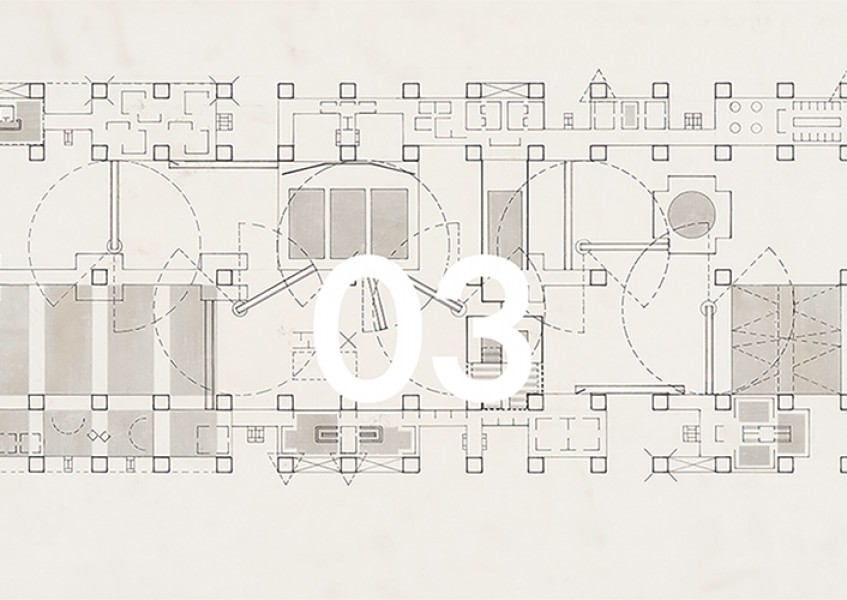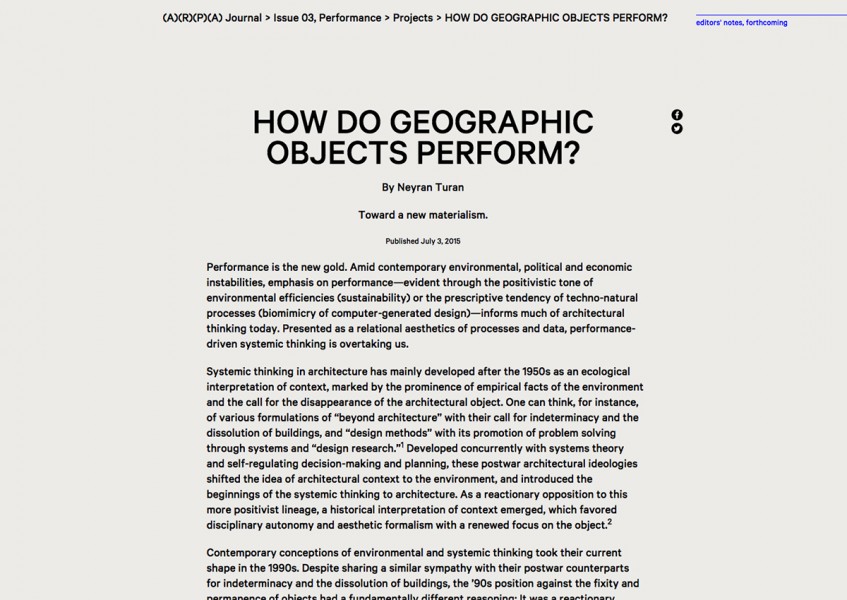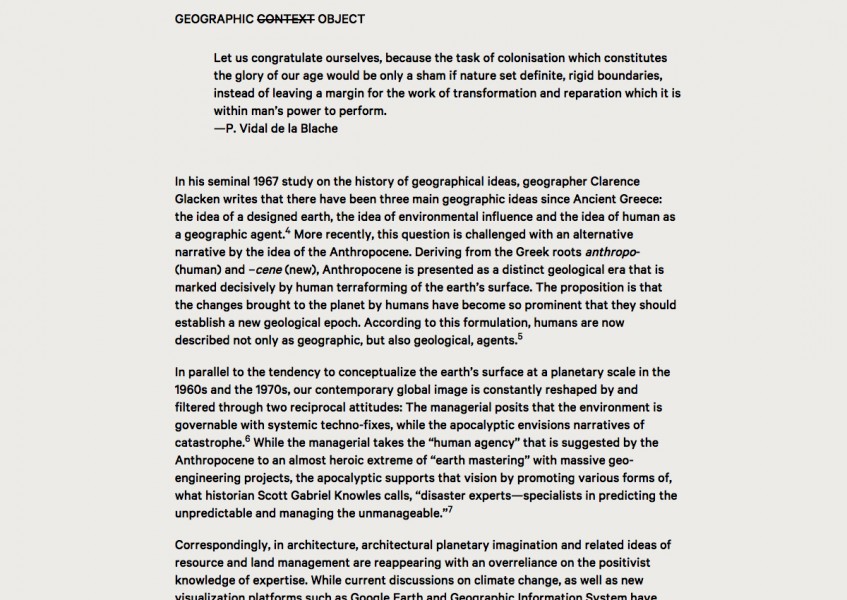[Full article available for view online at the ARPA Journal website]
Performance is the new gold. Amid contemporary environmental, political and economic instabilities, emphasis on performance—evident through the positivistic tone of environmental efficiencies (sustainability) or the prescriptive tendency of techno-natural processes (biomimicry of computer-generated design)—informs much of architectural thinking today. Presented as a relational aesthetics of processes and data, performance-driven systemic thinking is overtaking us.
Thinking that contemporary architectural conceptions of the environment are mostly limited to maintenance and performance through data and that the idea of raw data is an oxymoron, the question of representation begs further speculation. Rather than negating the representational for the sake of an emphasis on the material as it was in the '90s discussions of environment in architecture, can we instead talk about a new kind of materialism that couples an inquiry of data and matter with their seemingly opposing counterparts, such as representation, monumentality and composition? In the context of the new geological epoch posited by the Anthropocene, can we grant a different role to aesthetics between the representational and the material instead of limiting the concept's potential to the managerialism of planetary thinking and the reliance on data?
Seeing environment as an object not only has the potential to put more emphasis on the role of aesthetics over efficiency, but it also opens up a space for further speculation between abstraction and realism on the one hand, and legibility and performance on the other. Moreover, rather than merely relying on the management discourses of environmental science and technology, seeing environment as an object has the possibility to create alternative trajectories for architectural scholarship and experimentation that could build unprecedented relations with eco-criticism, science-technology-studies and environmental history. Environment and object both need to be saved.



